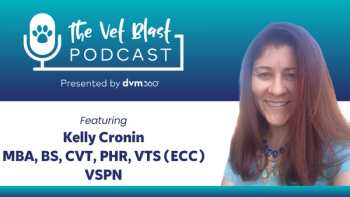
Clear the fear
Negative thoughts left unchecked can plague your practice, limiting growth and spoiling harmony. Face the fear, converts say. Here's how.
FEELINGS OF FEAR AND INADEQUACY IN THE STRUGGLE to make it in life often stem from events in our childhood and adolescence that subconsciously change how we react to high-stress situations. For me, such an experience occurred just before my 7th birthday. I came skipping home from school to find my mom with a living room full of sad grownups. My dad, who had gone on a fishing trip a day before, had experienced a massive heart attack. He never expected to die at 43, so he left my mom, my brother, and me with no savings or life insurance.
Go with the flow
In the subsequent years as we struggled to get back on our feet, I thought: "I have to be smart and know all the answers—or pretend that I do—and I must work really hard so I won't be poor and so people won't leave me." I call this my inherited purpose: the one I didn't consciously pick but that nevertheless affected my life for the next 30 years.
Outwardly I was a successful veterinarian and prominent member of my community; inwardly, I felt so empty that I seriously contemplated suicide. Through trial and error, I learned to face the fear so I could spend my energy focusing on my true purpose.
And now as a life and business coach, I help people overcome the many fears that shape their lives.
Your practice employs a group of people who have come together for a common purpose—to offer services to pets and their owners. Yet when fear starts to influence the group, when feelings of inadequacy crop up and struggles ensue, this fear-based culture acts like a master saboteur.
Face your fears
Negative thoughts often appear to be realities of business, but they can keep your practice from realizing its full potential. You must root out these fears and clear the air. Some common examples of fear-based, limiting thoughts in veterinary medicine:
- My clients' needs are more important than my own needs or those of my staff members.
- I have to keep the practice open on Saturdays (or in the evenings), or my clients will go elsewhere.
- If we raise our fees and charge what we're worth, our clients won't be able to pay for the services we offer and they'll leave us.
- I already know more procedures than my clients can afford, so what's the point of learning new skills?
Luckily, there are sound strategies to help you move past these thoughts. These strategies can make a profound and lasting difference in your personal and professional life.
First, start listening for and identifying limiting conversations in your practice. When you hear someone speaking from a place of fear, inadequacy, and struggle, it prompts a negative emotion within yourself. Spend a week or two listening to and writing down conversations and actions that seem to detract from your practice's quality of life. Some of these conversations may seem to be truths—things you can't change. These thoughts are the most important ones to identify, because they are often deeply held beliefs that aren't really true but only masquerading as truth.
As you observe and write down limiting thoughts, be careful not to get caught up in these negative emotions—recognize them and do not automatically believe them.
Fear, frustration, anger, resentment, anxiety, worry, resignation, malaise, and burnout—these feelings often shape the experience of being at work. So be aware of the general mood of your practice, particularly when things aren't going the way they should.
Create a more powerful place to stand
Once you've rooted out fear-based themes, the next step is to bring them to your team's attention. Talk about them not as truths, but simply as a series of conversations that stem from a sense of fear, inadequacy, and struggle. In this way you can punch holes in the reality that's been created and write a vision statement that captures your deepest values and what you see possible for your practice.
W. Bradford Swift, DVM
By keeping your vision in sight, you and your staff can let these new beliefs—not your old fears—begin to shape your daily actions and your practice's environment. And you can create a new context for your practice that will give you a more powerful place to stand.
W. Bradford Swift, DVM, is the founder of the Life on Purpose Institute and empowers professionals to live true to their life purpose through his writing, speaking, and coaching. Send questions or comments to
Newsletter
From exam room tips to practice management insights, get trusted veterinary news delivered straight to your inbox—subscribe to dvm360.





